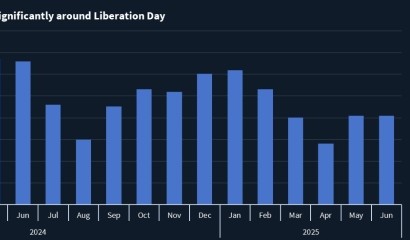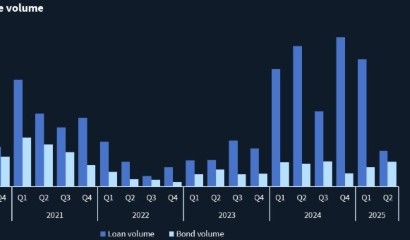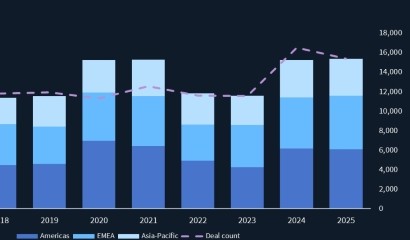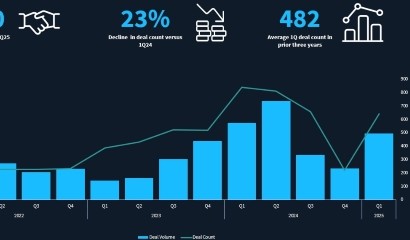Ardagh bondholders form another group advised by Akin
An ad hoc group of Ardagh bondholders has appointed Akin as their legal advisor, according to two sources familiar with the matter. The crossholder group has exposure to secured, unsecured and PIK notes issued by the Luxembourg-headquartered packaging company.
Separately, the first and a third source said Franklin Templeton – a significant holder of Ardagh’s debt – has decided to act independently of two groups that had been previously formed. It is unclear whether Franklin Templeton is part of the Akin-advised group.
According to an analysis of Bloomberg holdings data, Franklin Templeton, via its Franklin Resources funds, reported exposure to Ardagh entities totalling roughly USD 457m, with around 60% of this being holdings of Ardagh Group’s senior unsecured notes (SUNs).
As reported, two bondholder groups had previously formed already. One group focused on Ardagh’s secured notes, is advised by Gibson Dunn and Perella Weinberg Partners. A separate group of crossover unsecured bondholders formed and is advised by law firm Milbank.
Ardagh is advised by law firm Kirkland & Ellis and financial advisor Houlihan Lokey.
A labyrinthine capital structure
Recall, Ardagh’s group structure features a labyrinthine host of different issuing entities. Prior to a recently disclosed deal with Apollo (further details below), Ardagh’s capital structure broke down as follows
Ardagh Group (often referred to by its ticker ARGID) is the glass packaging business, which has USD 4.1bn in secured debt and USD 2.3bn in unsecured debt outstanding, including SSNs due in 2025 and 2026, alongside SUNs due in 2027.
Meanwhile, Ardagh Metal Packaging (AMP) is a standalone entity which sits outside the Ardagh Group restricted group, though it is connected as 75% of AMP’s equity is held by ARGID, with the latter also holding EUR 260m worth of preferred shares in the former.
AMP has USD 2.2bn in secured debt and USD 1.6bn in unsecured debt outstanding, including SUNs due in 2029 and SSNs due in 2027 and 2028. AMP has historically supported ARGID via dividend payments, which totalled USD 205m last year.
Trivium Packaging is a standalone entity in which ARGID holds a 43% minority stake. Unlike AMP, it is not consolidated but equity accounted. Trivium has USD 2.2bn secured debt and USD 700m unsecured debt, including SSNs due 2026 and SUNs due 2027.
Trivium, which makes metal food and aerosol packaging, has not paid a dividend in three years, so it has not contributed to cash flows at the ARGID level. However, as reported by Mergermarket, a sale process for Trivium is ongoing.
If sold at a 9.5x EV/EBITDA multiple – in the midrange for metal packaging businesses – this would result in slightly more than USD 300m in value attributable to the ARGID entity.
Lastly, holding company ARD Finance (ARDFIN) has also issued debt in the form of USD 895m and EUR 843m in Senior Secured PIK toggle notes due in 2027. The ARDFIN restricted group encompasses the ARGID restricted group.
Apollo in hunter-gatherer mode
Ardagh struck a deal with Apollo this month, under which the US-based fund is providing a new EUR 790m senior secured loan due 2029 to unrestricted subsidiary Ardagh Investments Holdings (AIHS) to refinance the USD 700m 5.25% 2025 SSNs issued by Ardagh Group.
In addition to providing this structurally senior facility, which has a pledge on AIHS’ equity interest in AMP, Apollo is also eligible to participate in an exchange of up to USD 250m worth of ARDFIN PIK notes and ARGID SUNs into the new AIHS loan facility.
Ardagh said the exchange loan will be issued “in a principal amount equal to the purchase price paid by the Apollo Investors for the exchanged PIK Notes and/or the Senior Unsecured Notes, as applicable, plus an agreed [undisclosed] premium”.
It is unclear whether Apollo already held a position in the PIK notes and SUNs, in which case the fund is effectively up-tiering existing exposure, or whether Apollo will now seek to acquire notes at a discount in the secondary market, said the third source.
In the latter case, one would expect to see a strong bid for the eligible notes which has yet to materialise, the third source added. Such manoeuvres – colloquially dubbed “hunter-gatherer” deals – are occasionally seen in the US, but are scarce in Europe, said the first source.
Ardagh also said it would no longer be paying cash interest on the PIK notes from 30 June 2024 onward. This could be a positive for ARGID, according to a broker note, as it will no longer need to pay dividends and will save circa USD 100m per year.
Fear of further deals
Given the new financing from Apollo only takes care of the 2025 SSNs, and maturities ramp up significantly in 2026, there is concern that there could be additional private deals which are unfavourable to existing creditors, said the first and third source.
“In terms of them looking to do more deals like this – it’s possible. It’s hard to see the longer-term benefits of this deal [with Apollo]. Buying back USD 400m [the nominal amount that can be bought with USD 250m at current market prices] is not going to move the dial in terms of leverage if it’s just this transaction,” said the first source.
Ardagh and Apollo did not reply to a request for comment. Franklin Templeton did not provide comment by the time of publication. Akin declined to comment.
Photo: Ardagh Group












